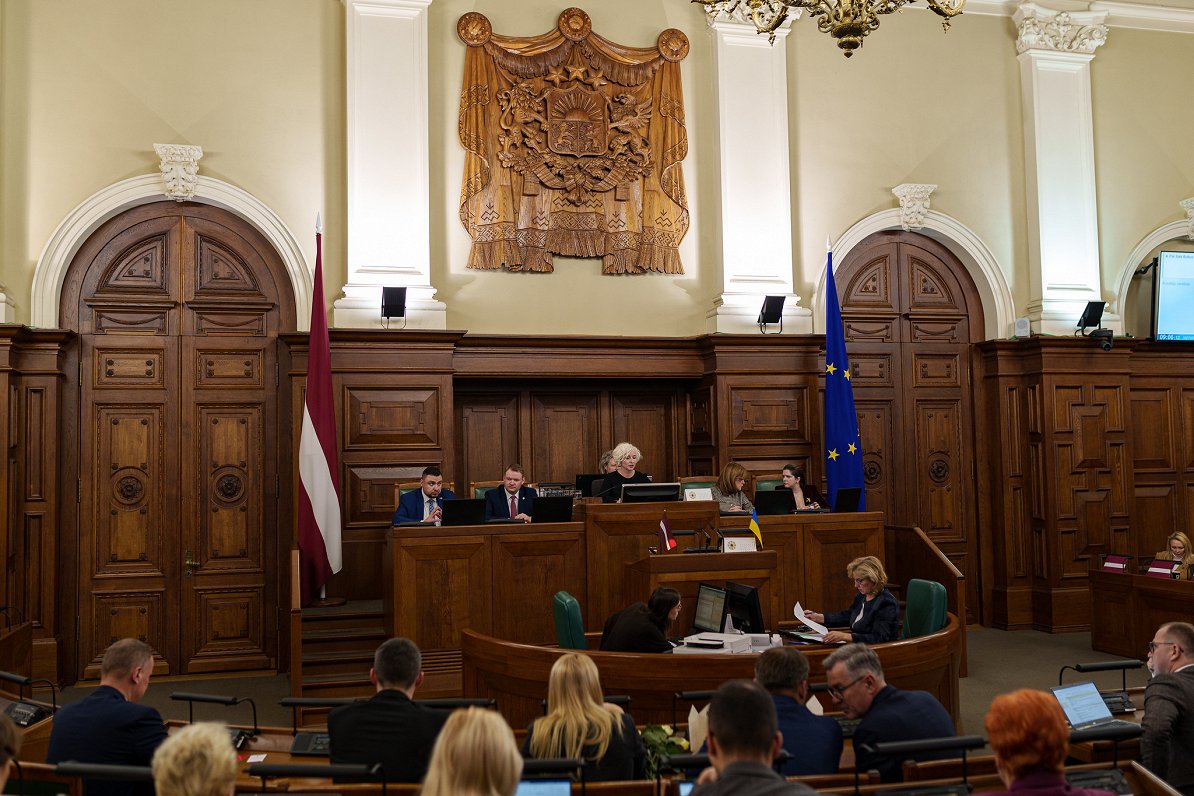Latvia’s three-party coalition government came under heavy fire in Saeima December 19 over its last-minute decision to cancel a planned vote on appointing a central bank governor.
A debate about the position of President of Latvijas Banka (usually referred to as the governor in English) and vote on nominated candidates had been due to take place and was duly entered on the Saeima’s agenda on December 17 with the current governor Mārtiņš Kazāks (favored by New Unity and the Progressives) set to face competition from two other potential candidates: Reinis Bērziņš (backed by the Greens and Farmers Union) and Pāvels Kuzmins (nominated by the opposition Stability! faction).
But on Wednesday evening , the coalition announced the withdrawal of its two nominated candidates, Kazāks and Bērziņš.
On Thursday coalition MPs withdrew their signatures for the candidacies of Kazāks and Bērziņš and the only remaining candidate, Kuzmins, was supported by only 10 deputies from the Stability! party that had nominated him while 78 voted against him, kicking his candidacy immediately into touch. A majority in the 100-seat Saeima is required to confirm a new governor.
The term of the current governor of the bank, Mārtiņš Kazāks, expires on Saturday, so the parliament appointed the bank’s deputy governor, Māris Kālis, as the acting governor of the central bank until a new vote can be arranged. According to the government, this will likely be in January if the three coalition parties – New Unity, the Progressives and the Greens and Farmers Union – manage to come up with a single candidate as they promise.
Opposition deputies lined up to blast the government’s mis-handling of the appointment of one of the most important jobs in the country and pointed out that it sends a very negative message to the European Central Bank as the governor of the Latvian central bank also sits on the governing council of the ECB. In the absence of an appointed governor, Latvia’s chair at the ECB could remain vacant for weeks.
The chaotic process was also repeatedly pointed to as evidence of the coalition’s weakness and fragility with opposition deputies saying it sounded the death-knell for the government of Prime Minister Evika Siliņa.






